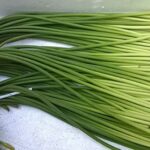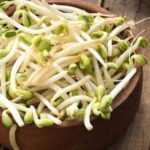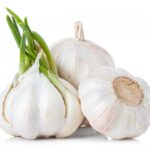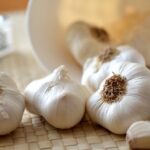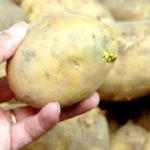It’s common to find sprouted vegetables and produce in our daily lives, and often, people tend to discard them, assuming they are past their prime. However, some sprouted vegetables are still edible, while others can be dangerous. Here is a list of sprouted vegetables to keep and those to avoid.
3 Sprouted Vegetables to Keep
Garlic
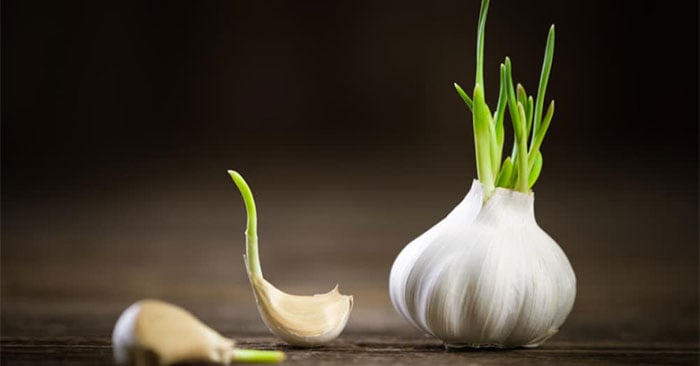
Vegetables to Keep and Those to Avoid When Sprouted
Garlic is a staple in many households. When garlic sprouts, it is still safe to consume. Garlic sprouts contain allicin, a compound with anti-inflammatory, antibacterial, and immune-boosting properties. Additionally, garlic sprouts retain these health benefits and even contain some antioxidants, which can help prevent cardiovascular disease and cancer. Feel free to use garlic sprouts in your cooking without any worries.
Mung Beans
Mung beans, when sprouted, become bean sprouts, which are highly nutritious. These sprouts are rich in vitamins, minerals, and enzymes beneficial to the body. Consuming mung bean sprouts improves digestion, boosts immunity, and promotes healthy skin. You can safely use them in salads or other dishes without any safety concerns.
Sweet Potatoes
Sweet potatoes are prone to sprouting, but if the sprouts are small, you can remove them and still use the tuber. Sweet potatoes are an excellent source of fiber, vitamins A and C, and minerals, benefiting heart health and digestion. However, if the sprouts are large and the skin turns green, discard the sweet potato entirely.
3 Sprouted Vegetables to Avoid
Potatoes
Potato sprouts are not safe to eat as they contain solanine, a toxin that can cause severe food poisoning. Consuming sprouted potatoes can lead to vomiting, diarrhea, abdominal pain, and even shock. Solanine is a natural compound that forms in potatoes when exposed to light. Therefore, if your potatoes have sprouted, especially if the skin turns green, discard them entirely, as the toxin may remain in the tuber even after removing the sprouts.
Tomatoes
Sprouted tomatoes, especially when the sprouts appear on the fruit, can be dangerous. Tomatoes belong to the nightshade family and contain solanine and tomatine, two compounds that can be toxic in large quantities. While ripe tomatoes are safe, the toxin levels can increase with sprouting, affecting digestion and overall health. If your tomatoes have sprouted, remove the sprouts and use the remaining fruit with caution.
Cabbage
Cabbage is a popular and nutritious vegetable, but when left to sprout for an extended period, it can produce some harmful chemicals, reducing its nutritional value. These sprouts can cause digestive issues and discomfort. Therefore, it’s best to discard cabbage if it has sprouted to avoid any potential health risks.
Properly handling sprouted vegetables is crucial for maintaining good health. While some vegetables, like garlic, mung beans, and sweet potatoes, can be utilized when sprouted, others, such as potatoes, tomatoes, and cabbage, should be avoided to prevent health hazards. Always inspect your produce thoroughly and remove any sprouts to ensure safety and retain the highest nutritional value.
























